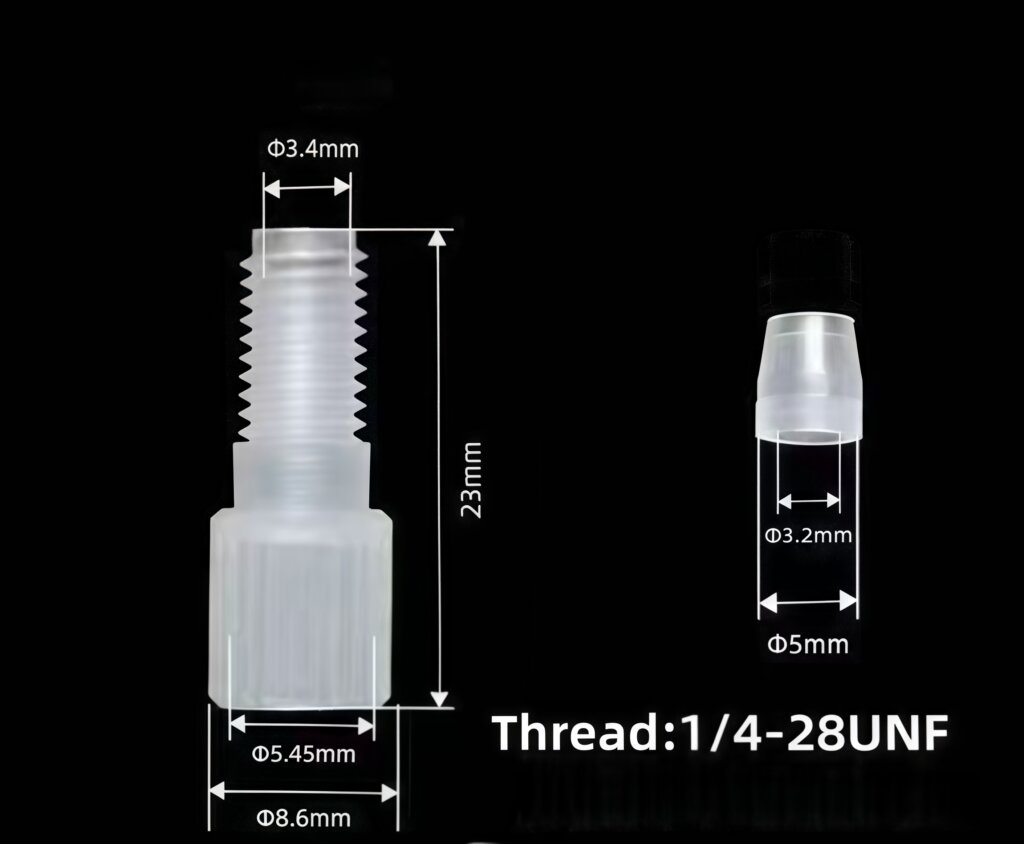In fluid handling systems, reliable connectors are essential for stable operation and leak prevention. The combination of inverted cone fittings and compression rings offers a superior sealing solution for rigid tubing, especially in applications like multi-port switching valves and syringe pumps.
1. What Are Inverted Cone Fittings and Compression Rings?
Inverted cone fittings feature a tapered design that mates tightly with a compression ring to form a secure, leak-free connection. These are particularly effective for connecting PTFE, PFA, and FEP rigid tubes, where a tight seal and mechanical strength are essential.

2. Application Areas: Multi-Channel Switching Valves and Syringe Pumps
These fittings are widely used in:
Multi-channel switching valves: Where multiple fluid paths require fast, tight, and leak-proof connections.
Syringe pump systems: Where precision dosing and chemical resistance are critical for consistent flow delivery.
3. Material Matters: PP vs. PTFE
Two major materials are commonly used:
| Material | Features | Recommended Use |
|---|---|---|
| PP (Polypropylene) | Low cost, suitable for neutral fluids | Not suitable for strong acids or alkalis |
| PTFE (Polytetrafluoroethylene) | Chemically inert, corrosion-resistant, high-temperature tolerance | Ideal for harsh chemicals and precision systems |

4. Why Choose Inverted Cone Fittings?
✅ Excellent Sealing: Prevents leakage of gases and fluids with high sealing integrity.
✅ Wide Tube Compatibility: Suitable for various rigid tubing like PTFE, PFA, and FEP.
✅ Chemical Resistance: PTFE resists a wide range of aggressive chemicals.
✅ Tool-Free Installation: Easy to install—just insert and tighten by hand.
5. Frequently Asked Questions
Q1: Are inverted cone fittings reusable?
A1: Yes, if undamaged. However, for high-demand applications, it’s best to use a new compression ring.
Q2: How do I choose between PP and PTFE?
A2: Use PTFE when dealing with corrosive fluids or requiring high long-term reliability.
Q3: Are these fittings suitable for vacuum systems?
A3: Absolutely. They offer excellent performance under both positive and negative pressures.
6. Conclusion: Small Fittings, Big Performance
Though small in size, inverted cone fittings play a crucial role in ensuring the integrity and efficiency of fluid systems. Choosing the right material and design means better performance, less maintenance, and longer system life—especially in multi-channel valve and syringe pump setups.
Interested in learning more about fitting materials, sealing designs, or requesting samples? Contact us for datasheets, demo videos, or application cases.


